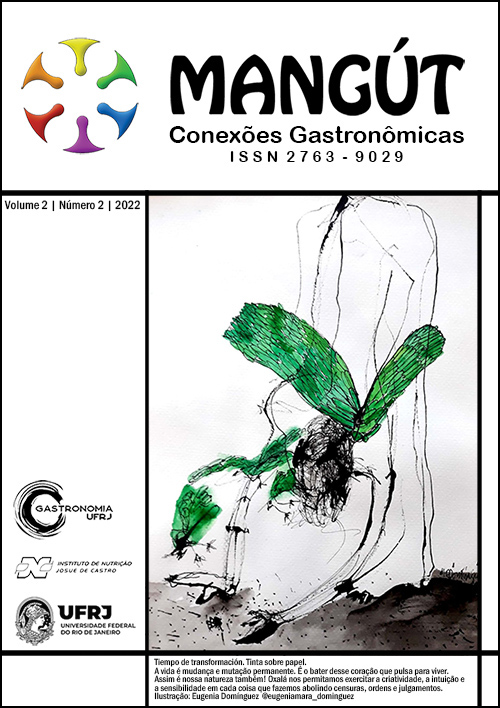Project-based teaching methodology in Gastronomy courses: experience report in Brazilian Cuisine II
DOI:
https://doi.org/10.70051/mangt.v2i2.55067Keywords:
Gastronomy, Pedagogical practice, Teaching-learning, Project Based Learning (PBL),Abstract
The curricular unit of Brazilian Cuisine II of the Baccalaureate in Gastronomy course provides in its menu the contents of the Brazilian macro-regions of the South, Southeast and Center-West. Understanding the teaching-learning process as a possibility to develop skills through consolidated knowledge, developing and applying methodologies that embrace theory and practice becomes coherent. The objective of this teaching experience report is to describe and contribute to the systematization of pedagogical practices in the higher education course of Gastronomy. The methodology applied in this practice has three basic assumptions: planning, multidisciplinarity, and active methodology. The teaching planning proposed activity with references and theoretical foundations, inviting the student to develop the multidisciplinary character and its applicability, as well as the use of PBL Project-Based Learning methodology. From this, a teacher evaluation and collection of student perceptions about the evaluation methodology were carried out. As a result of this practice, it is possible to observe, on the part of the professor and also of the students, that student involvement in the project, through research in different sources, considers the multidisciplinary menu of gastronomy, as well as reveals skills parallel to the main objective.
Downloads
Published
Issue
Section
License
Copyright (c) 2023 Gabriela Cruz Aguiar, Carina Ellen da Silva Santos

This work is licensed under a Creative Commons Attribution 4.0 International License.
Autores que publicam nesta revista concordam com os seguintes termos:
- Autores mantém os direitos autorais e concedem à revista o direito de primeira publicação, com o trabalho simultaneamente licenciado sob a Licença Creative Commons Attribution que permite o compartilhamento do trabalho com reconhecimento da autoria e publicação inicial nesta revista.
- Autores têm autorização para assumir contratos adicionais separadamente, para distribuição não-exclusiva da versão do trabalho publicada nesta revista (ex.: publicar em repositório institucional ou como capítulo de livro), com reconhecimento de autoria e publicação inicial nesta revista.
- Autores têm permissão e são estimulados a publicar e distribuir seu trabalho online (ex.: em repositórios institucionais ou na sua página pessoal) a qualquer ponto antes ou durante o processo editorial, já que isso pode gerar alterações produtivas, bem como aumentar o impacto e a citação do trabalho publicado (Veja O Efeito do Acesso Livre).



